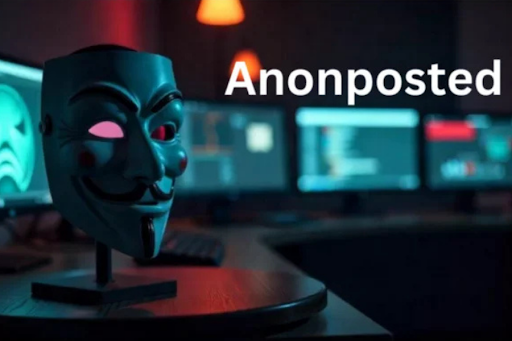Exploring Anonposted: The Ultimate Guide to Anonymous Blogging
In today’s digital world, every action we take online leaves behind a trace. Yet, there’s an increasing appeal to anonposted blogging, a space where individuals can speak their minds freely, without worrying about the consequences. Whether you’re sharing personal stories, bold opinions, or innovative ideas, the ability to blog anonymously grants a sense of liberation from judgment and the scrutiny of others.
But what does it mean to truly blog without revealing your identity? Why has anonymity become such a powerful tool for writers today? In this guide, we’ll explore the essence of anonymous blogging, its importance, and how you can protect your privacy while expressing yourself authentically.
The Power of Being Anonposted in Blogging
Anonposted in blogging serves as a protective shield. It provides an opportunity to voice opinions without the pressure of societal expectations or personal bias. Blogging under a pseudonym allows you to address subjects that may be too sensitive or controversial to approach under your real name.
This freedom fosters creativity and honesty. You’re not weighed down by what others might think of you or how your identity could influence your words. Writing anonymously leads to more authentic, open content that resonates deeply with readers.
Furthermore, anonymity reduces the risk of backlash. In a world where every opinion can spark sharp criticism or online harassment, having the cover of a pseudonym allows you to contribute without fear of professional or personal repercussions. This sense of security encourages people from diverse backgrounds to share perspectives they might otherwise keep hidden.
Why Not Being Anonymous Can Be Risky
In the digital era, the dangers of not protecting your online identity are significant. Every post, comment, or tweet you share can be linked back to you, putting both your personal and professional life at risk.
Identity Theft: With the rise of cybercrime, your personal data is a valuable commodity. If exposed, it can be used for malicious purposes like fraud or theft.
Job Repercussions: Many employers now check social media profiles before making hiring decisions. A poorly thought-out comment or impulsive post could jeopardize your job prospects.
Online Harassment: Sharing opinions online can invite unwanted attention, from trolls to online bullies. Without anonymity, you might become a target of constant harassment.
Legal and Censorship Risks: Speaking on sensitive issues can expose you to government scrutiny or corporate censorship, leading to serious legal issues.
Achieving True Anonymity in Your Blogging Journey
Achieving full anonymity in blogging requires a series of deliberate steps. Let’s break them down to ensure your identity stays under wraps.
Selecting the Right Blogging Platform
When choosing a platform, privacy should be your priority. Not all blogging platforms take anonymity seriously. Some might require personal information or collect user data.
Look for platforms that focus on privacy, like Write.as or Ghost. These services allow users to create and share content without requiring any personal identifiers. If you want more control, consider self-hosted blogs, where you can configure your privacy settings to your liking.
Before committing to a platform, carefully review its privacy policy. This will give you insight into how your data is handled and whether your identity could be exposed.
Crafting Your Anonymous Persona
A pseudonym is the cornerstone of anonymous blogging. Choose a name that feels right for the topics you want to explore but doesn’t link to your real-life identity. This name should stand out and remain memorable to your audience.
Develop a backstory for your persona. Think about interests, views, or experiences that align with the blog’s themes but don’t give away anything too personal. This helps to create an engaging identity that feels authentic, yet still shields your true self.
Instead of using personal photos, consider using avatars or stock images. These add a visual identity to your blog while maintaining your privacy.
Lastly, be consistent. Whether it’s the writing style or social media presence, maintaining a cohesive persona ensures that readers connect with your content without suspecting anything about who you are behind the screen.
The Role of VPNs in Protecting Your Privacy
A Virtual Private Network (VPN) is an invaluable tool for anyone blogging anonymously. VPNs mask your real IP address, making it difficult for anyone to trace your online activity. By routing your connection through a different server, they also prevent third parties from monitoring your actions.
When choosing a VPN, ensure it has strong encryption and a no-logs policy to ensure your online behavior remains confidential. Select a provider that offers servers in multiple locations to maintain flexibility and security.
Make it a habit to connect to a VPN every time you log into your blog. It’s a simple yet effective step that greatly enhances your online security.
Protecting Your Data with Encryption
Encrypting your communications and data is another vital step in securing your anonymity. This ensures that even if someone intercepts your online activity, they won’t be able to read it.
For emails and messages, use encrypted communication tools like Signal or ProtonMail. For blog content, ensure that your platform uses HTTPS to encrypt data during transmission.
When sharing sensitive files, consider using encryption software to keep everything safe. Encrypting documents before sending them ensures that no unauthorized parties can access your private data.
The Upside of Staying Anonymous
The allure of anonymous blogging lies in the freedom it offers. By separating your personal identity from your writing, you gain the freedom to express yourself without fear of judgment. Anonymity allows for more raw, honest content that resonates with readers on a deeper level.
Being anonymous can also increase your creative potential. You’re not constrained by what others might think of you or how your identity might color your work. This is especially important for tackling controversial or personal topics.
Lastly, maintaining anonymity protects your privacy from the myriad of threats online. It allows you to write without constantly worrying about your personal information being exposed.
Wrapping Up: The Freedom of Anonymous Blogging
Anonymous blogging is more than just a way to stay under the radar. It’s a tool for empowering self-expression in a world that often demands conformity. By embracing anonymity, you’re free to share your thoughts without fear of repercussions.
Achieving complete anonymity requires a careful approach: selecting the right platform, crafting a solid persona, using VPNs, and encrypting communications. If done right, your blog can serve as a safe space where creativity flows freely and ideas thrive, all while keeping your identity protected.
While there may be obstacles—like maintaining consistency or dealing with legal implications—the rewards of anonymous blogging far outweigh the challenges. It’s a powerful way to contribute to the digital landscape while safeguarding your privacy.
Final Thoughts
Anonposted blogging offers a unique platform for individuals to express their thoughts and ideas freely, without the fear of judgment or potential consequences. It provides a sense of security and allows for creative freedom, making it possible to explore sensitive or controversial topics that might otherwise be difficult to address.
However, maintaining true anonymity requires effort and attention to detail. From choosing the right platform and creating a distinct persona to using encryption tools and VPNs, every step plays a crucial role in safeguarding your identity. While there are challenges, such as the occasional lack of credibility or potential legal concerns, the benefits often outweigh these obstacles.
In the end, anonymous blogging is more than just a trend—it’s a vital means of expression for many people seeking a safe space to voice their opinions. As you embark on this journey, remember that your identity may be hidden, but your voice has the power to make an impact. With the right precautions, you can navigate this digital landscape with confidence and share your ideas with the world while keeping your privacy intact.\
FAQS
What is anonymous blogging?
Anonymous blogging allows individuals to share thoughts, opinions, or creative work without revealing their true identity.
Why is anonymity important in blogging?
It protects privacy, enables freedom of expression, and shields against potential backlash or harassment.
How do I start an anonymous blog?
Choose a privacy-focused platform, create a pseudonym, use a VPN, and encrypt your communications to maintain privacy.
Can my identity be traced if I blog anonymously?
If you take the right precautions (VPN, pseudonyms, and encrypted communications), it’s much harder to trace your identity.
What are the risks of not being anonymous?
Exposure to identity theft, harassment, damage to personal reputation, and legal consequences are some risks of not maintaining anonymity.
How do I maintain anonymity while engaging with readers?
Avoid sharing personal information and be consistent with your anonymous persona across all platforms.
Is anonymous blogging legal?
Yes, but be aware of local laws related to online expression and take care not to violate them while remaining anonymous.
Keep connected for the latest updates and notifications: Tube Galore





